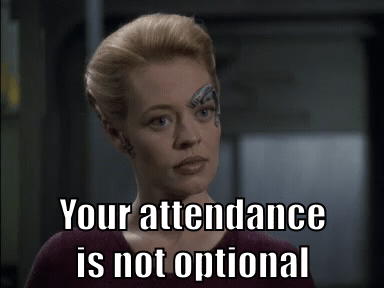It's political debate season! That means it's pretty hard to avoid talking politics just about anywhere you go. Work, class, home, the grocery store; politics will be in your face virtually everywhere.
Talking about politics is great! You get to share your opinion while learning about someone else's. But, because politics generally involve topics that are meaningful to people, disagreements occur and things can get pretty nasty pretty quickly. Here are some tips on how to have informative political discussions without letting things get out of hand.
1. Respect other's opinions.
When discussing politics, or anything else really, you don't have to agree with the other person, but that doesn't mean they're wrong. Everyone is entitled to their own opinion, and you should respect that. See, we're all independently functioning, conscious beings. We all have our own unique brains with our own ideas and opinions. We're not always going to agree, but that's okay. As long as mutual respect occurs, knowledge can grow.
2. Do your research.
There is nothing more frustrating than trying to have a political debate with someone and they have no information to back themselves up with. Save yourself some embarrassment and stay informed. If you know what you are talking about and can support your points with actual facts, you should have no reason to get angry or make personal attacks. Usually when things get nasty it's because someone got backed into a corner and had no information to reason their way out, so they got personal. Make sure this doesn't happen by only engaging in a conversation if you actually have information to contribute.
3. Don't get personal.
Just because someone has different political views than you, doesn't mean they're a bad person. Political affiliation doesn't define someone's character. Personal attacks and name calling don't help the conversation move forward and just make you look petty. Remember that the person you're talking to is still your friend/classmate/coworker/boss/relative and they deserve your respect.
4. Remain calm.
Politics can sometimes involve sensitive subjects and things can get heated pretty quickly. The important thing to remember is to respect one another. You can respectfully disagree with someone else's opinion, but yelling and letting your emotions get the best of you will not contribute to the conversation, and can cause the loss of a friendship. Keep your cool and fight back with reason, not insults.
5. Stay open-minded.
While you may think that your political stance is the one and only way to live, understand that everyone else probably also feels this way. You want the other person to listen to and consider what you have to say, so do the same for them. After all, what else is the point of getting into discussions about politics if not to learn from and teach others about different ideas.
6. Don't let it linger.
While you may enjoy a good ole' political debate with a co-worker, don't let your clashing ideals affect your opinion of or interactions with them outside of the conversation. Recognize that although you may have very different political perspectives, your co-worker is still a good person. Don't let your future interactions be dictated by the fact that you *gasp* have different brains! Acknowledge it and move on; you don't have to hate that person now or treat them any differently.
7. Brush it off.
If the above tips are not followed and things do get heated, personal, or nasty, remember to let it go. Of course we don't all have the same opinions, and sometimes political conversations can get a little out of control. Remain confident in your self and brush off any personal attacks that were thrown your way. It's not worth it to get worked up because someone wasn't informed enough to back themselves up and they had to result to cruelty.

























































